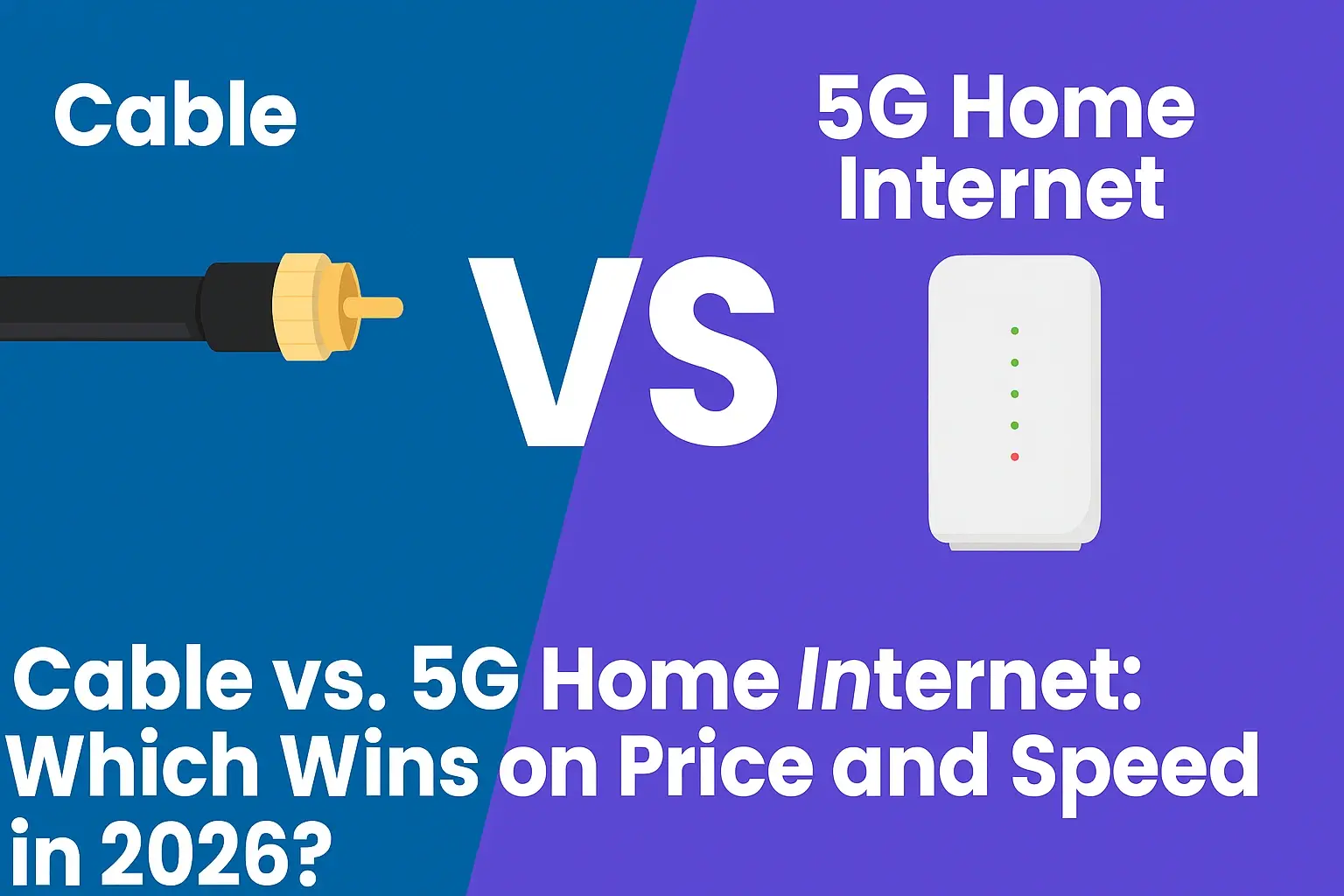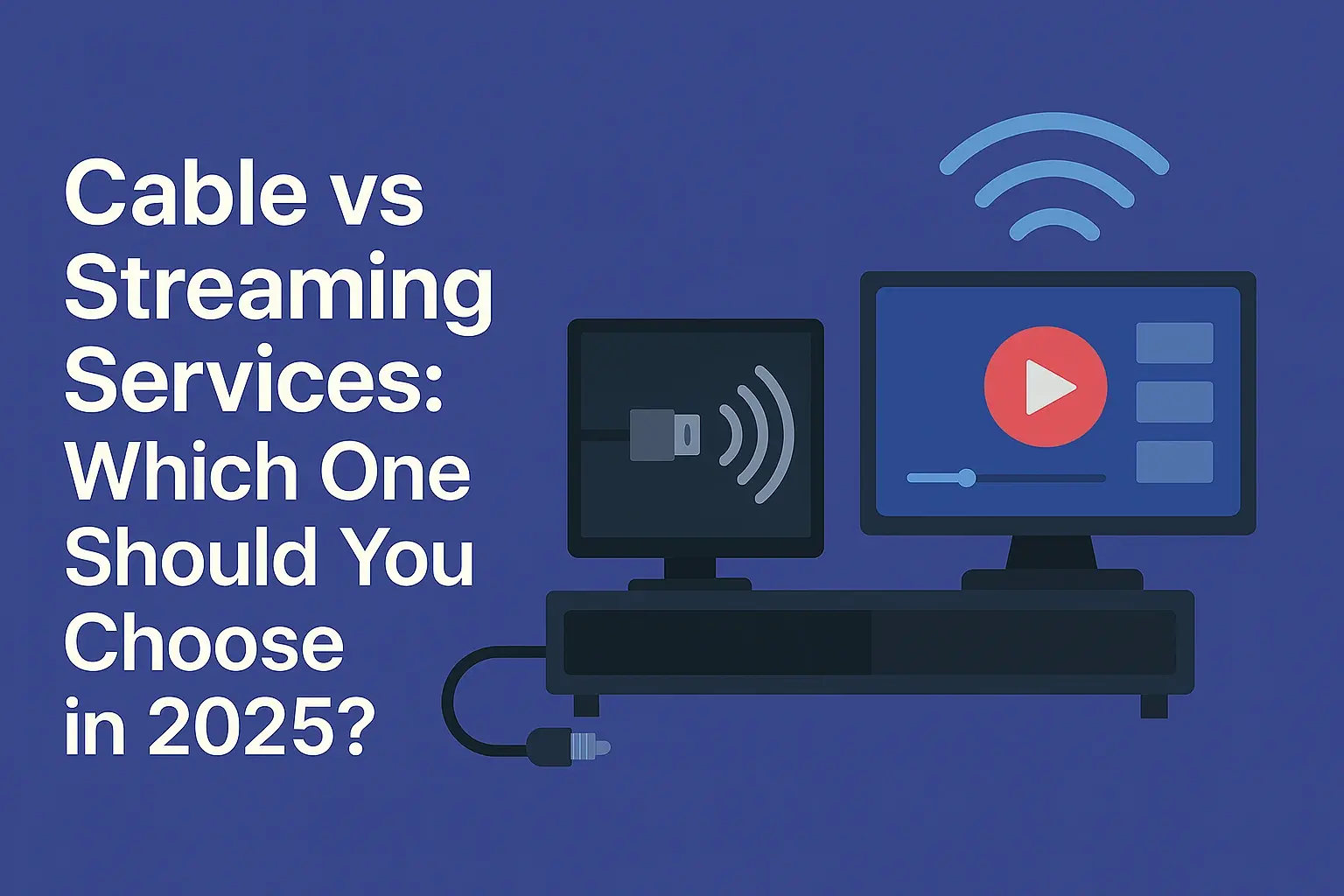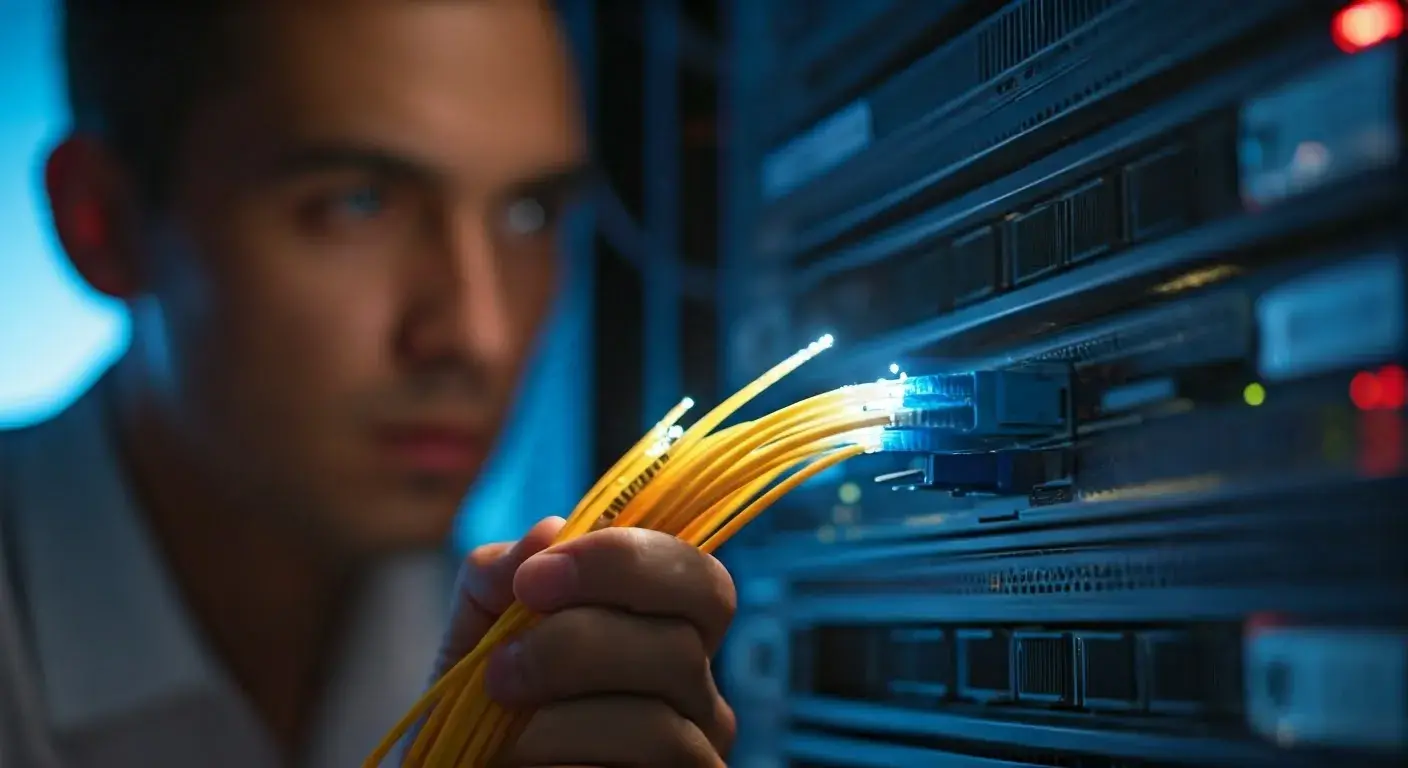
Unlock unprecedented business efficiency and operational agility by leveraging the power of high-speed business cable internet. This guide explores how superior connectivity directly translates into enhanced productivity, reduced downtime, and a significant competitive edge in today's fast-paced digital landscape.
Understanding High-Speed Business Cable Internet
In the contemporary business environment, reliable and fast internet connectivity is no longer a luxury; it's a fundamental necessity. High-speed business cable internet, leveraging the same coaxial cable infrastructure used for cable television, has emerged as a robust and cost-effective solution for businesses of all sizes. Unlike older DSL technologies that rely on telephone lines, cable internet utilizes a broader bandwidth, allowing for significantly higher download and upload speeds. This technology is designed to deliver consistent performance, making it ideal for businesses that depend heavily on digital operations.
The core of cable internet technology lies in its use of hybrid fiber-coaxial (HFC) networks. This architecture combines the reach and flexibility of fiber optic cables with the established infrastructure of coaxial cables. Data travels through fiber optic lines for the majority of the distance to a local node, where it is then converted and transmitted over coaxial cables to individual businesses. This hybrid approach ensures that businesses receive high-capacity data streams efficiently, minimizing latency and maximizing throughput. For businesses, this translates directly into faster access to cloud services, seamless video conferencing, rapid data transfers, and a more responsive online presence.
How Cable Internet Works for Businesses
Cable internet providers use a shared network architecture. This means that multiple users in a given area share the same bandwidth capacity. However, business-grade cable internet plans are typically provisioned with dedicated bandwidth or prioritized traffic management, mitigating the potential for slowdowns often associated with residential plans during peak usage hours. This prioritization is a critical differentiator for businesses seeking consistent performance.
The technology employs a system of channels to transmit data. Different channels are allocated for downstream (downloading data) and upstream (uploading data) traffic. The wider the range of channels available and the more efficiently they are managed, the higher the potential speeds. Modern cable modems and network infrastructure are capable of supporting gigabit speeds, a significant leap from the megabit speeds that were once considered state-of-the-art. For businesses, this means that large files can be downloaded or uploaded in minutes rather than hours, and multiple users can simultaneously access bandwidth-intensive applications without experiencing significant degradation in performance.
Key Components of a Cable Internet Connection
- Coaxial Cable: The physical cable that runs from the provider's network to the business premises, carrying the internet signal.
- Cable Modem: A device that translates the signal from the coaxial cable into a format usable by computers and other network devices. Business-grade modems are often more robust and feature-rich.
- Network Interface Card (NIC): The component within a computer or device that connects to the modem or router.
- Router: A device that manages the network, allowing multiple devices to share the internet connection and providing Wi-Fi capabilities. Business routers often offer advanced security features and network management tools.
The reliability of cable internet has improved dramatically over the years. Providers invest heavily in network maintenance and upgrades to ensure uptime and minimize disruptions. For businesses, this means a more stable connection that supports continuous operations. The ability to conduct critical business functions without interruption is paramount, and high-speed cable internet is engineered to deliver this reliability.
Why High-Speed Cable Internet is Crucial for Business Productivity
In the competitive landscape of 2025-26, a business's ability to adapt and operate efficiently is directly tied to its technological infrastructure. High-speed business cable internet is a foundational element that underpins nearly every aspect of modern business operations. Slow, unreliable internet can cripple productivity, frustrate employees, and lead to missed opportunities. Conversely, robust connectivity acts as a powerful catalyst for growth and efficiency.
The immediate impact of high-speed internet is the reduction of wait times. Think about the cumulative time lost each day waiting for large files to download, webpages to load, or cloud applications to respond. For a team of 20 employees, even a few minutes saved per employee per day can add up to hundreds of hours of lost productivity per year. High-speed cable internet significantly minimizes these delays, allowing employees to focus on their core tasks rather than waiting for technology to catch up.
The Direct Correlation Between Speed and Efficiency
Speed is not just about faster downloads; it's about enabling a smoother workflow. When employees can access critical data, collaborate seamlessly, and utilize cloud-based tools without lag, their overall efficiency increases. This is particularly true for industries that rely heavily on real-time data processing, design, and communication.
Consider the following scenarios:
- Cloud-Based Applications: Modern businesses increasingly rely on Software-as-a-Service (SaaS) applications like Salesforce, Microsoft 365, and Google Workspace. These platforms require constant, fast communication with remote servers. Slow internet means laggy interfaces, delayed data saving, and a frustrating user experience, directly impacting productivity.
- Video Conferencing and Collaboration: With the rise of remote and hybrid work models, high-quality video conferencing is essential for team meetings, client interactions, and project discussions. High-speed cable internet ensures clear audio and video, minimizing dropped calls and enabling more productive collaborative sessions.
- Large File Transfers: Industries like graphic design, video production, engineering, and architecture frequently deal with massive files. Transferring these files via email or slow FTP can take hours. High-speed cable internet can reduce these transfer times to minutes, accelerating project timelines and client approvals.
- Data Backups and Recovery: Regular, efficient data backups are crucial for business continuity. Fast internet speeds allow for more frequent and complete backups to cloud storage, ensuring that data can be recovered quickly in the event of a system failure or cyberattack.
- Website Performance and Customer Experience: For businesses with an online presence, website loading speed is a critical factor in customer engagement and conversion rates. Slow-loading websites lead to higher bounce rates and lost sales. High-speed internet ensures your website is fast and responsive.
Minimizing Downtime and Technical Frustration
Beyond speed, reliability is a key benefit of business-grade cable internet. While residential cable can experience fluctuations due to shared bandwidth, business plans often come with Service Level Agreements (SLAs) that guarantee a certain level of uptime and performance. This reduces the likelihood of costly downtime due to internet outages or slow connections. Reduced technical frustration also contributes to a more positive and productive work environment.
In 2025-26, the digital divide is not just about access, but about the quality of access. Businesses that invest in high-speed cable internet are better positioned to leverage emerging technologies, attract top talent, and outmaneuver competitors who are held back by inadequate connectivity. It's an investment that pays dividends across all operational facets.
Key Productivity Boosts with High-Speed Cable Internet
The benefits of high-speed business cable internet extend far beyond simply faster loading times. It fundamentally reshapes how businesses operate, leading to tangible improvements in efficiency, collaboration, and innovation. Let's delve into the specific areas where businesses experience the most significant productivity gains.
1. Enhanced Cloud Service Performance
The cloud is the backbone of modern business operations. From customer relationship management (CRM) systems and enterprise resource planning (ERP) software to project management tools and data storage, businesses are increasingly migrating their critical functions to the cloud. High-speed cable internet ensures that accessing and utilizing these cloud services is seamless and instantaneous.
- Faster Data Synchronization: Cloud-based platforms rely on real-time data synchronization. High upload and download speeds mean that changes made by one user are reflected instantly for others, preventing data conflicts and ensuring everyone is working with the most up-to-date information.
- Reduced Latency in Applications: Laggy cloud applications can severely hinder productivity. High-speed internet minimizes latency, making cloud-based software feel as responsive as locally installed applications. This is crucial for tasks requiring quick data entry, complex calculations, or interactive dashboards.
- Seamless Access to Remote Data: Employees working remotely or from multiple office locations can access company data stored in the cloud without delay, fostering a truly connected and unified workforce.
According to a 2025 survey by TechInsights, businesses that upgraded to gigabit-speed internet reported an average of a 20% increase in productivity when using cloud-based productivity suites.
2. Streamlined Collaboration and Communication
Effective collaboration is vital for project success and innovation. High-speed internet empowers teams to communicate and work together more efficiently, regardless of their physical location.
- High-Quality Video Conferencing: Crystal-clear video and audio are essential for productive meetings. High-speed cable internet supports high-definition video streams, reducing dropped calls, freezing, and audio glitches that disrupt communication and waste valuable time.
- Real-Time Document Collaboration: Tools like Google Docs and Microsoft 365 allow multiple users to edit documents simultaneously. Fast internet ensures these edits appear instantly, facilitating real-time co-authoring and review processes.
- Efficient File Sharing: Sending and receiving large files, such as design mockups, video edits, or large datasets, becomes significantly faster. This accelerates feedback loops and speeds up project delivery times.
A study by Global Workforce Analytics in late 2025 found that companies with robust internet infrastructure experienced a 15% improvement in cross-departmental project completion times.
3. Accelerated Data Transfer and Processing
Many industries require the rapid transfer and processing of large volumes of data. High-speed cable internet is instrumental in optimizing these operations.
- Faster Downloads and Uploads: This is the most obvious benefit. Downloading large software updates, client assets, or research materials takes minutes instead of hours. Uploading completed projects, reports, or media content is equally expedited.
- Efficient Database Operations: Businesses that manage large databases benefit from faster query times and data import/export capabilities, leading to quicker insights and more responsive applications.
- Support for Big Data Analytics: As data volumes grow, the ability to quickly ingest, process, and analyze this data becomes critical. High-speed internet is a prerequisite for effective big data strategies.
In the financial sector, for instance, high-speed internet can mean the difference between executing a trade microseconds faster or slower, impacting profitability. For media companies, it means faster rendering and distribution of content.
4. Enhanced Website and Online Presence
For any business with an online presence, website performance is directly linked to customer experience and revenue. High-speed internet ensures your digital storefront is always performing at its best.
- Improved Website Loading Speed: A fast-loading website reduces bounce rates and keeps visitors engaged. This is crucial for e-commerce, lead generation, and brand perception.
- Seamless Multimedia Integration: Businesses can host and stream high-quality videos, interactive demos, and rich media content without buffering or lag, providing a more engaging experience for website visitors.
- Faster Online Transactions: For e-commerce businesses, quick transaction processing is vital. High-speed internet ensures that online orders are processed swiftly and securely, minimizing cart abandonment.
According to recent reports from 2025, websites that load within 3 seconds see a 30% higher conversion rate than those that take longer.
5. Reduced Downtime and Increased Reliability
Beyond speed, business-grade cable internet offers superior reliability compared to many residential options, which directly translates to less downtime and more consistent productivity.
- Service Level Agreements (SLAs): Business plans often come with guaranteed uptime SLAs, ensuring a certain percentage of operational time. This provides peace of mind and predictability.
- Prioritized Traffic: Providers often prioritize business traffic, ensuring consistent speeds even during peak usage times.
- Robust Infrastructure: Business-grade connections are typically supported by more robust network infrastructure, designed to handle higher traffic loads and maintain stability.
Downtime is incredibly costly. The average cost of IT downtime for small businesses in 2025 was estimated at over $100,000 per incident, factoring in lost revenue, decreased productivity, and potential reputational damage. Reliable internet minimizes this risk.
Choosing the Right High-Speed Business Cable Internet Plan
Selecting the optimal high-speed business cable internet plan is a critical decision that requires careful consideration of your business's unique needs and operational demands. A plan that is too slow will bottleneck your operations, while an overly expensive, high-capacity plan might be an unnecessary expenditure. The key is to find the right balance that supports current needs and future growth.
Assessing Your Business's Internet Requirements
Before comparing providers or plans, conduct a thorough assessment of your current and projected internet usage. This involves understanding the number of users, the types of applications you use, and the volume of data you transfer.
- Number of Users: How many employees will be simultaneously using the internet? Each user consumes bandwidth, especially when engaging in data-intensive activities.
- Types of Applications: Are you primarily using email and basic web browsing, or do you rely heavily on cloud-based CRM, ERP systems, video conferencing, large file transfers, or VoIP? Bandwidth requirements vary significantly based on application type.
- Data Volume: Estimate the amount of data you download and upload daily or monthly. This is particularly important for businesses that handle large media files, conduct extensive research, or manage large databases.
- Upload vs. Download Speeds: While download speeds are often emphasized, upload speeds are crucial for activities like video conferencing, uploading large files, cloud backups, and hosting web services. Ensure the plan offers a suitable upload-to-download ratio for your needs.
- Reliability and Uptime Guarantees: For critical business operations, Service Level Agreements (SLAs) that guarantee uptime are essential. Understand what the provider offers in terms of guaranteed uptime and response times for technical support.
- Scalability: Consider your business's growth trajectory. Will your current internet needs double or triple in the next 1-2 years? Choose a plan that allows for easy upgrades to higher speeds as your business expands.
Understanding Speed Tiers and Bandwidth
Cable internet plans are typically categorized by their advertised speeds, measured in megabits per second (Mbps) or gigabits per second (Gbps). It's important to understand what these speeds mean in practical terms.
- Basic Connectivity (e.g., 50-100 Mbps): Suitable for small businesses with a limited number of users (under 10) who primarily use email, web browsing, and basic cloud applications.
- Standard Business Connectivity (e.g., 100-500 Mbps): A good balance for many small to medium-sized businesses (SMBs) with moderate usage, including regular video conferencing, cloud application use, and occasional large file transfers.
- High-Performance Business Connectivity (e.g., 500 Mbps - 1 Gbps+): Ideal for larger organizations, businesses with heavy reliance on cloud services, frequent large file transfers, high-definition video streaming, and intensive data processing.
Remember that advertised speeds are often "up to" speeds. The actual speed you experience can be affected by network congestion, your internal network setup, and the specific services you are accessing. Business plans often offer dedicated bandwidth or prioritized traffic, which helps maintain more consistent speeds.
Key Features to Look For in Business Cable Internet Plans
When comparing providers, look beyond just the speed. Several other features are critical for business-grade service:
| Feature | Importance for Business | Considerations |
|---|---|---|
| Guaranteed Uptime (SLA) | Crucial for business continuity. Minimizes financial losses due to outages. | Look for 99.9% or higher uptime guarantees. Understand penalties for provider failure to meet SLA. |
| Dedicated Bandwidth/Prioritized Traffic | Ensures consistent performance, especially during peak hours. | Ask providers if they offer dedicated business lines or traffic prioritization. |
| Static IP Addresses | Necessary for hosting servers, VPNs, and certain remote access applications. | Determine if you need one or multiple static IPs. Some plans include them, others charge extra. |
| Enhanced Security Features | Protection against cyber threats. | Some providers offer integrated firewalls, intrusion detection, or managed security services. |
| 24/7 Business Support | Quick resolution of issues to minimize downtime. | Verify support availability and response times. Business support lines are often prioritized. |
| Installation and Equipment | Professional installation ensures optimal setup. Business-grade modems/routers may be required. | Inquire about installation fees, equipment rental costs, or if you can use your own compatible hardware. |
| Contract Length and Terms | Understand the commitment and any early termination fees. | Longer contracts may offer lower monthly rates, but ensure flexibility for future needs. |
Comparing Providers and Plans
The business cable internet market is competitive. Research local and national providers that serve your area. Look for providers with a strong reputation for reliability and customer service. When comparing, create a spreadsheet to track:
- Advertised Download/Upload Speeds
- Monthly Cost
- Contract Length
- SLA Guarantees
- Static IP Availability
- Included Equipment
- Customer Support Options
- Installation Fees
Don't hesitate to contact providers directly to discuss your business needs and get customized quotes. Ask specific questions about their network architecture, traffic management policies, and support protocols. A proactive approach to selecting your internet plan will pay dividends in long-term productivity and cost-effectiveness.
Implementation and Optimization Strategies
Once you've selected and installed your high-speed business cable internet, the journey to maximizing productivity doesn't end. Effective implementation and ongoing optimization are crucial to ensure you're fully leveraging the capabilities of your new connection. This involves not just the internet service itself, but also your internal network infrastructure and how your employees utilize the technology.
Optimizing Your Internal Network
A fast internet connection can be severely bottlenecked by an outdated or poorly configured internal network. Ensure your internal infrastructure can handle the speed and capacity of your business cable internet.
- Upgrade Your Router: If your current router is several years old, it might not be capable of supporting gigabit speeds or efficiently managing multiple devices. Invest in a business-grade router that is designed for high-speed connections and offers advanced features like Quality of Service (QoS) for traffic prioritization.
- Utilize Wired Connections: While Wi-Fi is convenient, wired Ethernet connections (Gigabit Ethernet) generally offer more stable and faster speeds. Encourage employees to use wired connections for critical tasks or desktop workstations whenever possible.
- Optimize Wi-Fi Performance: For wireless devices, ensure your Wi-Fi network is properly configured. This includes choosing the right Wi-Fi channel to avoid interference, placing access points strategically for optimal coverage, and using modern Wi-Fi standards (e.g., Wi-Fi 6 or Wi-Fi 6E).
- Network Segmentation: For larger businesses, segmenting your network can improve performance and security. For example, separating guest Wi-Fi from your internal business network ensures that guest traffic doesn't impact your critical operations.
- Bandwidth Management (QoS): Configure your router's Quality of Service (QoS) settings to prioritize critical business applications (like VoIP or video conferencing) over less time-sensitive traffic. This ensures that essential communications remain smooth even during periods of high network usage.
Employee Training and Best Practices
Your employees are the end-users of your internet connection. Educating them on best practices can significantly enhance overall productivity and responsible internet usage.
- Educate on Bandwidth Usage: Train employees to be mindful of their bandwidth consumption. For example, avoid unnecessary large file downloads or streaming during peak business hours unless it's work-related.
- Promote Cloud Collaboration Tools: Ensure employees are proficient in using cloud-based collaboration tools. Proper usage of these tools, enabled by fast internet, can drastically improve teamwork and project efficiency.
- Secure Internet Practices: Reinforce the importance of strong passwords, avoiding suspicious links, and using VPNs when accessing sensitive company data remotely. High-speed internet shouldn't come at the expense of security.
- Regular Software Updates: Encourage or automate the updating of operating systems and applications. These updates often include performance improvements and security patches that can also benefit from faster download speeds.
- Reporting Issues: Establish a clear process for employees to report any internet connectivity issues or performance degradation. Prompt reporting allows for quicker troubleshooting and resolution.
Monitoring and Performance Analysis
Continuous monitoring of your internet performance is essential to identify potential issues before they impact productivity and to ensure you are getting the most value from your service.
- Regular Speed Tests: Conduct periodic speed tests (using reputable online tools) at different times of the day and from various locations within your network. Compare these results against your contracted speeds.
- Network Monitoring Tools: Consider implementing network monitoring software that can track bandwidth usage, identify bandwidth hogs, and alert you to performance anomalies or outages. Many business-grade routers have built-in monitoring capabilities.
- Analyze Application Performance: Pay attention to the performance of your key business applications. If you notice consistent lag or slow response times, it could indicate an internet bottleneck or an issue with the application itself.
- Review Provider Reports: If your provider offers usage or performance reports, review them regularly to understand your network's behavior and identify trends.
Troubleshooting Common Issues
Even with high-speed internet, occasional issues can arise. Knowing how to troubleshoot can save valuable time.
- Restart Equipment: The classic "turn it off and on again" often resolves temporary glitches. Restart your modem, router, and individual devices.
- Check Cables: Ensure all network cables are securely connected and undamaged.
- Isolate the Problem: Determine if the issue affects a single device, multiple devices, or the entire network. This helps pinpoint whether the problem lies with a specific device, your internal network, or the internet service itself.
- Contact Your Provider: If you've exhausted internal troubleshooting steps and suspect an issue with the service, contact your internet provider's business support line. Be prepared to provide details about the problem and any troubleshooting steps you've already taken.
By implementing these strategies, businesses can ensure that their investment in high-speed cable internet translates directly into sustained productivity gains, improved operational efficiency, and a stronger competitive position in the market.
Real-World Impact and Case Studies (2025-26)
The theoretical benefits of high-speed business cable internet are compelling, but its true value is best illustrated through real-world examples. In the dynamic business environment of 2025-26, companies across various sectors are actively leveraging superior connectivity to achieve remarkable improvements in their operations. These case studies highlight the tangible impact of robust internet infrastructure.
Case Study 1: A Growing E-commerce Startup
Business Profile: "SwiftShip Goods" is an online retailer specializing in artisanal home decor. Founded in 2022, the company experienced rapid growth, quickly outgrowing its initial residential internet plan. With a customer base of over 50,000 and a catalog of thousands of products, their website's performance and order processing speed were becoming critical bottlenecks.
The Challenge: As order volume increased, the company's old internet struggled to handle simultaneous customer browsing, real-time inventory updates, payment processing, and order fulfillment notifications. Website loading times increased, leading to a noticeable rise in cart abandonment rates. Uploading new product images and descriptions became a time-consuming chore, delaying product launches.
The Solution: SwiftShip Goods upgraded to a 1 Gbps business cable internet plan with guaranteed uptime and a business-tier support package. They also invested in a high-performance business router with QoS capabilities.
The Impact (2025-26):
- Website Performance: Average website loading time decreased from 6.5 seconds to 1.8 seconds.
- Conversion Rates: Cart abandonment rates dropped by 25%, directly contributing to a 15% increase in online sales within the first quarter post-upgrade.
- Operational Efficiency: Order processing time was reduced by 40%, allowing the fulfillment team to handle a 30% higher volume of orders daily without additional staffing.
- Content Management: Uploading product images and descriptions, previously taking several minutes per item, now takes seconds, allowing for faster product catalog updates and marketing campaigns.
- Employee Morale: The IT and marketing teams reported significantly less frustration and more time to focus on strategic initiatives rather than fighting slow internet.
SwiftShip Goods found that the investment in high-speed business cable internet was directly responsible for their ability to scale efficiently and maintain a competitive edge in the crowded e-commerce market.
Case Study 2: A Hybrid Creative Agency
Business Profile: "Vivid Creations" is a marketing and design agency with a team of 30 employees, operating on a hybrid model with 60% of staff working remotely. They handle large design files, video editing projects, and frequent client video conferences.
The Challenge: The agency's previous internet service, a mix of DSL and basic business cable, struggled to support their demanding workflows. Video conferences were often choppy, large file transfers between remote team members took hours, and accessing cloud-based project management tools was inconsistent, leading to delays and missed deadlines.
The Solution: Vivid Creations implemented a unified 800 Mbps business cable internet solution across their main office, ensuring sufficient bandwidth for all employees, both on-site and remote. They also standardized on a high-performance router with robust QoS settings to prioritize critical applications like video conferencing and file sharing.
The Impact (2025-26):
- Collaboration Efficiency: The number of dropped or laggy video calls decreased by over 90%. Team members reported feeling more connected and engaged during virtual meetings.
- Project Turnaround Times: Transferring large project files (e.g., 5GB video edits) between team members, which previously took 2-3 hours, now takes an average of 15 minutes. This accelerated project turnaround by an estimated 20%.
- Cloud Application Responsiveness: Accessing cloud-based design software and project management platforms became instantaneous, reducing user frustration and increasing productivity for creative staff.
- Client Satisfaction: The ability to conduct seamless, high-quality client presentations and deliver final assets faster led to improved client satisfaction and repeat business.
- Reduced IT Support: The stability and speed of the new connection led to a 50% reduction in internet-related IT support tickets.
Vivid Creations found that their upgraded internet infrastructure was not just a utility but a strategic enabler, allowing their hybrid workforce to collaborate effectively and deliver high-quality creative work more efficiently.
Case Study 3: A Growing Professional Services Firm
Business Profile: "Apex Financial Advisors" is a firm with 50 employees providing financial consulting services. Their operations rely heavily on secure access to cloud-based financial data, real-time market feeds, and frequent client communication via video and secure portals.
The Challenge: The firm experienced intermittent connectivity issues and slow speeds, particularly during peak trading hours. This impacted their ability to access real-time market data, process client transactions quickly, and conduct secure video consultations, leading to potential financial risks and client dissatisfaction.
The Solution: Apex Financial Advisors transitioned to a dedicated 1 Gbps business cable internet service with a strong Service Level Agreement (SLA) guaranteeing 99.99% uptime and prioritized traffic management. They also ensured their network infrastructure supported these speeds with business-grade switches and Wi-Fi 6 access points.
The Impact (2025-26):
- Data Access and Processing: Access to real-time market data feeds improved dramatically, with latency reduced by over 70%. This allowed advisors to make more timely and informed decisions.
- Transaction Speed: The processing speed for client transactions and secure data transfers increased significantly, reducing the risk of errors and improving client trust.
- Reliability and Uptime: The firm experienced zero unplanned internet downtime in the first year of service, a stark contrast to previous issues. This ensured continuous operations and client service availability.
- Secure Communication: High-definition, stable video consultations became the norm, enhancing client engagement and the professional image of the firm.
- Compliance: The reliable and secure nature of the business-grade internet service helped the firm maintain compliance with industry regulations regarding data access and communication.
Apex Financial Advisors views their high-speed business cable internet as a critical component of their operational resilience and a key factor in maintaining their reputation for reliability and client service excellence.
These case studies, representative of trends observed in 2025-26, demonstrate that investing in high-speed business cable internet is not merely an IT upgrade but a strategic imperative that drives measurable improvements in sales, efficiency, collaboration, and client satisfaction across diverse industries.
Future Trends in Business Connectivity
The landscape of business connectivity is in constant evolution, driven by the relentless demand for faster speeds, lower latency, and greater reliability. As we look towards the latter half of the 2020s and beyond, several key trends are shaping the future of how businesses connect and operate, with high-speed cable internet playing a pivotal role in this transition.
The Continued Rise of Gigabit and Multi-Gigabit Speeds
What was once considered cutting-edge is rapidly becoming the standard. Gigabit speeds are no longer a niche offering for large enterprises; they are increasingly accessible and essential for businesses of all sizes. The development of DOCSIS 4.0 technology is enabling cable providers to push speeds even further, with multi-gigabit (2 Gbps, 4 Gbps, and even higher) symmetrical speeds becoming a reality for many business customers.
This surge in speed will fuel:
- Enhanced Cloud Integration: As cloud services become more sophisticated and data-intensive, multi-gigabit speeds will be necessary for seamless integration and real-time data processing.
- Immersive Collaboration Tools: The next generation of virtual and augmented reality (VR/AR) collaboration tools will require massive bandwidth and ultra-low latency, which future cable internet upgrades are poised to deliver.
- AI and Machine Learning Deployment: The ability to ingest and process vast datasets for AI and machine learning applications will be significantly accelerated by higher bandwidth.
Increased Emphasis on Symmetrical Speeds
Historically, cable internet has been asymmetrical, with significantly higher download speeds than upload speeds. However, the demands of modern business – particularly cloud-based applications, video conferencing, and large file uploads – necessitate a better balance. Future cable internet deployments are increasingly focusing on delivering symmetrical or near-symmetrical speeds.
This trend is driven by:
- Remote Work Enablement: With hybrid and remote work models becoming permanent fixtures, robust upload speeds are critical for employees participating in high-definition video calls, sharing large files, and accessing company resources from home.
- Content Creation and Distribution: Businesses that create and distribute their own content (e.g., video production, software development) will benefit immensely from faster upload capabilities.
- VoIP and Real-Time Applications: Consistent and high-quality upload speeds are vital for Voice over IP (VoIP) services and other real-time communication applications.
The Integration of 5G and Wi-Fi 7
While cable internet provides the core connectivity, the way devices connect within a business premises is also evolving. The widespread adoption of 5G for mobile connectivity and the emergence of Wi-Fi 7 will complement high-speed cable internet.
- 5G as a Business Backup: For critical business operations, 5G wireless can serve as a reliable backup internet connection in case of cable outages, ensuring business continuity.
- Wi-Fi 7 Enhancements: Wi-Fi 7 promises significantly higher speeds, lower latency, and improved reliability compared to its predecessors, making it ideal for supporting the high-bandwidth demands of future applications and a multitude of connected devices within a business environment. This will ensure that the speed delivered by the cable modem is effectively distributed throughout the office.
Enhanced Network Security and Reliability
As businesses become more reliant on digital infrastructure, the importance of robust security and unwavering reliability will only grow. Cable providers are investing in advanced network management and security protocols to protect business customers.
Future developments include:
- Advanced Network Monitoring: Proactive monitoring systems that can detect and mitigate threats before they impact service.
- Enhanced Encryption: Stronger encryption standards to protect data in transit.
- More Resilient Infrastructure: Continued investment in network hardening and redundancy to minimize downtime.
- Integrated Security Solutions: Providers may offer more comprehensive security suites as part of their business internet packages, including managed firewalls, intrusion detection, and cybersecurity consulting.
The Role of AI in Network Management
Artificial intelligence (AI) is set to play a more significant role in managing and optimizing internet networks. AI algorithms can analyze network traffic patterns, predict potential issues, and automatically adjust network resources to ensure optimal performance and reliability.
AI will contribute to:
- Predictive Maintenance: Identifying and addressing potential network failures before they occur.
- Dynamic Bandwidth Allocation: Intelligently distributing bandwidth based on real-time demand.
- Automated Troubleshooting: Faster identification and resolution of network problems.
These future trends indicate that high-speed business cable internet will remain a cornerstone of business operations, evolving to meet the ever-increasing demands of the digital economy. Businesses that proactively adopt and leverage these advancements will be best positioned for success in the coming years.
Conclusion
In the demanding business climate of 2025-26, the choice of internet connectivity is a strategic decision with profound implications for productivity, efficiency, and competitive advantage. High-speed business cable internet stands out as a powerful, reliable, and increasingly accessible solution for businesses aiming to thrive in the digital age. By understanding its capabilities and strategically implementing it, companies can unlock unprecedented operational agility.
The evidence is clear: superior internet speeds directly translate to reduced wait times, seamless cloud integration, enhanced collaboration, accelerated data transfers, and a more robust online presence. Real-world case studies illustrate significant improvements in sales, project turnaround times, and client satisfaction. Furthermore, the ongoing evolution of cable technology promises even greater speeds, symmetrical bandwidth, and enhanced reliability, ensuring it remains a future-proof investment.
Our actionable recommendation is to conduct an immediate assessment of your current internet infrastructure. If your business is still operating on outdated or inadequate connectivity, prioritize upgrading to a high-speed business cable internet plan. Carefully evaluate your specific needs, compare provider offerings, and invest in a solution that includes robust support and scalability. This proactive step is not just an IT upgrade; it's a fundamental investment in your business's future growth and sustained success.






